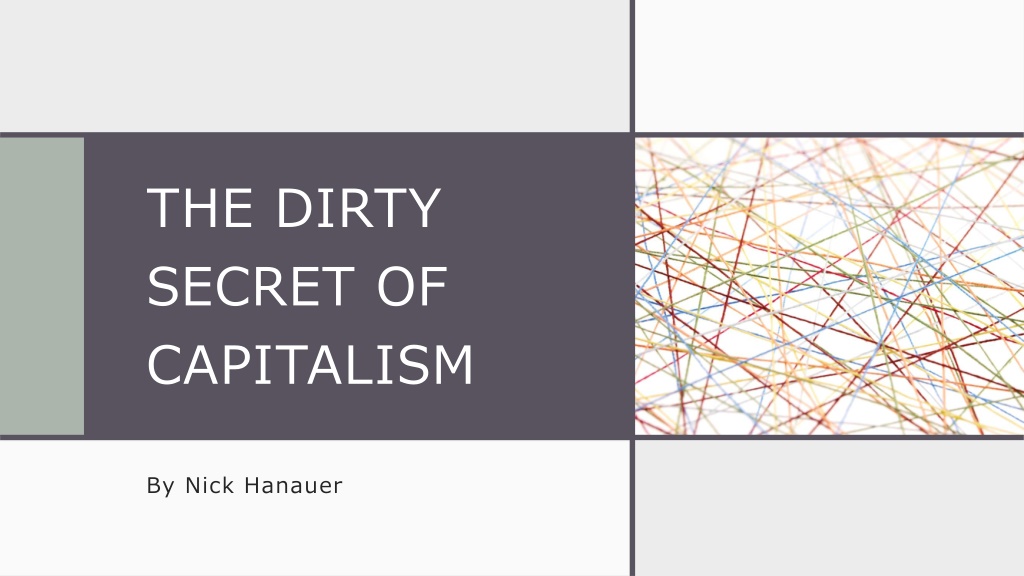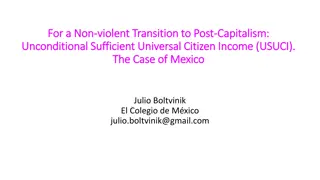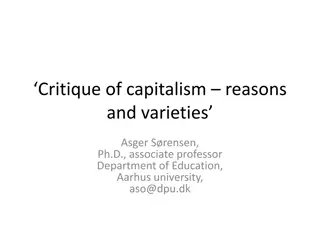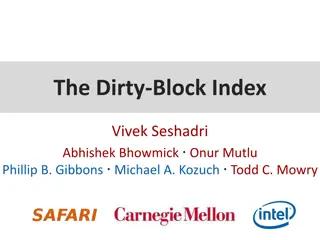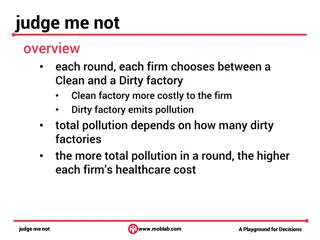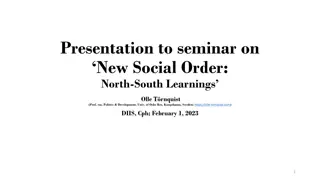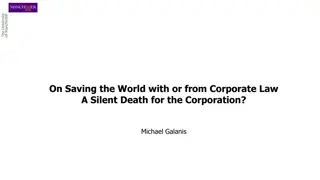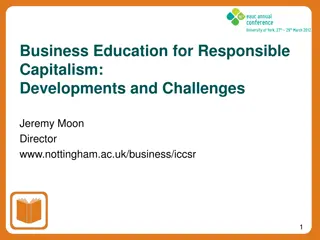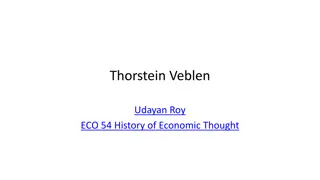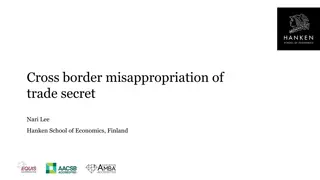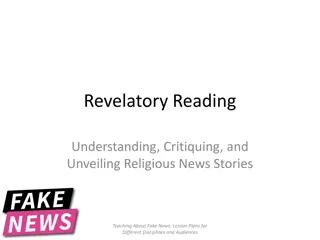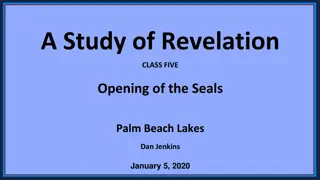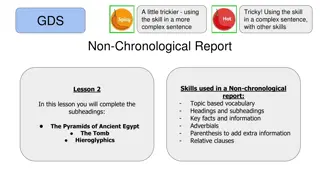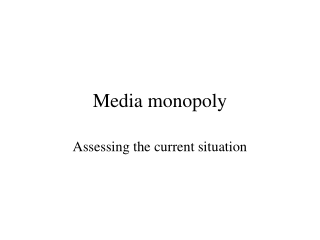Unveiling the Dirty Secrets of Capitalism by Nick Hanauer
Nick Hanauer, a successful capitalist, sheds light on the flaws of capitalism and neoliberal economic theory, emphasizing the need for regulatory changes to benefit the majority. He challenges the assumptions of market capitalism and advocates for a new economic approach focused on cooperation and social norms.
Download Presentation

Please find below an Image/Link to download the presentation.
The content on the website is provided AS IS for your information and personal use only. It may not be sold, licensed, or shared on other websites without obtaining consent from the author. Download presentation by click this link. If you encounter any issues during the download, it is possible that the publisher has removed the file from their server.
E N D
Presentation Transcript
THE DIRTY SECRET OF CAPITALISM By Nick Hanauer
Main ideas What is the dirty secret of capitalism? Why is the current neoliberal economic theory inefficient? What neoliberal economic assumptions are wrong? What is market capitalism and why is it problematic? What are the five rules of thump of new economics?
Main ideas KEY Dirty secret: It works for the MNCs benefit and the rich not raise taxes for the rich, regulate MNCs, raise wages for the poor Inefficient: inequalities are increasing, injustice & exclusion, political instability, more austerity & globalization, tenets: capital creates growth, competition creates prosperity, self-interest promotes public good Wrong assumptions: 1: perfect equilibrium, 2: price=value, 3: humans=selfish, self-maximizing Market capitalism: innovation& consumer demand but needs social & econ.cooperation to handle complexity New economics rules: 1: successful economies must be constrained by social norms/democratic regulation, 2: inclusion, 3: MNCS purpose: benefit stakeholders, 4: greed=bad, 5: economics: choice, not a given
Rhetorical strategies Which strategies are used in the introduction? I am a capitalist, and after a 30-year career in capitalism spanning three dozen companies, generating tens of billions of dollars in market value, I'm not just in the top one percent, I'm in the top .01 percent of all earners. Today, I have come to share the secrets of our success, because rich capitalists like me have never been richer. So the question is, how do we do it? How do we manage to grab an ever-increasing share of the economic pie every year? Is it that rich people are smarter than we were 30 years ago? Is it that we're working harder than we once did? Are we taller, better looking?
Introductory strategies KEY Credibility personal experience Contrast bet what he does as a venture capitalist & what he is going to support Questions Common ground Purpose of speech
Identify the strategies What we now know is that the economics that made me so rich isn't just wrong, it's backwards, because it turns out it isn't capital that creates economic growth, it's people; and it isn't self-interest that promotes the public good, it's reciprocity; and it isn't competition that produces our prosperity, it's cooperation.
Identify the strategies KEY What we now know is that the economics that made me so rich isn't just wrong, it's backwards, because it turns out it isn't capital that creates economic growth, it's people; and it isn't self-interest that promotes the public good, it's reciprocity; and it isn't competition that produces our prosperity, it's cooperation. Parallelism & contrast, common ground
So where did we go wrong? Identify the strategies So how do we leave neoliberalism behind and build a more sustainable, more prosperous and more equitable society?
So where did we go wrong? Identify the strategies KEY So how do we leave neoliberalism behind and build a more sustainable, more prosperous and more equitable society? Questions as introductions to answers (not rhetorical)
Now, I want to emphasize that this new economics is not something I have personally imagined or invented. Its theories and models are being developed and refined in universities around the world building on some of the best new research in economics, complexity theory, evolutionary theory, psychology, anthropology and other disciplines. Identify the strategies
Now, I want to emphasize that this new economics is not something I have personally imagined or invented. Its theories and models are being developed and refined in universities around the world building on some of the best new research in economics, complexity theory, evolutionary theory, psychology, anthropology and other disciplines. Identify the strategies KEY Building credibility by referring to research done in various fields
Rule four: greed is not good. Being rapacious doesn't make you a capitalist, it makes you a sociopath. Identify the strategies
Rule four: greed is not good. Being rapacious doesn't make you a capitalist, it makes you a sociopath. Identify the strategies KEY Short sentences & phrases, contrast, humor
WHY WE NEED TO RETHINK CAPITALISM By Paul Tudor Jones II
How do we value our companies? How do higher profit margins exacerbate inequalities? Main ideas Why is income inequality not a good thing? How can inequality be reduced? What is Just Capital and how does it work?
rip the humanity out of them too few people own most of the share of wealth, when this rises, less is left for the rest/poor Main ideas KEY social problems: life expectancy, teen pregnancy, illiteracy, lack of social mobility increasing justice in corporations non profit: help other corporations adopt more just corporate behavior - by surveying the public about what they consider just behavior
This is a story about capitalism. It's a system I love because of the successes and opportunities it's afforded me and millions of others. I started in my 20s trading commodities, cotton, in particular, in the pits, and if there was ever a free market free-for-all, this was it, where men wearing ties but acting like gladiators fought literally and physically for a profit. Identify the strategies Fortunately, I was good enough that by the time I was 30, I was able to move into the upstairs world of money management, where I spent the next three decades as a global macro trader. And over that time, I've seen a lot of crazy things in the markets, and I've traded a lot of crazy manias. And unfortunately, I'm sad to report that right now we might be in the grips of one of the most disastrous, certainly of my career, and one consistent takeaway is manias never end well.
Short sentence Identify the strategies KEY Personal experience-narration Credibility Contrast
This chart is corporate profit margins going back 40 years as a percentage of revenues, and you can see that we're at a 40-year high of 12.5 percent. Now, hooray if you're a shareholder, and you're the average American worker, then you can see it's not such a good thing. ["U.S. Share of Income Going to Labor vs. CEO-to-Worker Compensation Ratio"] but if you're the other side of that, Identify the strategies Again, income inequality is not a good thing. This next chart, made by The Equality Trust, shows 21 countries from Austria to Japan to New Zealand. On the horizontal axis is income inequality. The further to the right you go, the greater the income inequality. On the vertical axis are nine social and health metrics. The more you go up that, the worse the problems are, and those metrics include life expectancy, teenage pregnancy, literacy, social mobility, just to name a few. Now, those of you in the audience who are Americans may wonder, well, where does the United States rank? Where does it lie on that chart? And guess what? We're literally off the chart. Yes, that's us, with the greatest income inequality and the greatest social problems, according to those metrics.
This chart is corporate profit margins going back 40 years as a percentage of revenues, and you can see that we're at a 40-year high of 12.5 percent. Now, hooray if you're a shareholder, you're the other side of that, and you're the average American worker, then you can see it's not such a good thing. ["U.S. Share of Income Going to Labor vs. CEO-to-Worker Compensation Ratio"] but if Again, income inequality is not a good thing. This next chart, made by The Equality Trust, shows 21 countries from Austria to Japan to New Zealand. On the horizontal axis is income inequality. The further to the right you go, the greater the income inequality. On the vertical axis are nine social and health metrics. The more you go up that, the worse the problems are, and those metrics include life expectancy, teenage pregnancy, literacy, social mobility, just to name a few. Now, those of you in the audience who are Americans may wonder, well, where does the United States rank? Where does it lie on that chart? And guess what? We're literally off the chart. Yes, that's us, with the greatest income inequality and the greatest social problems, according to those metrics. Identify the strategies KEY Short sentences, credibility: data, direct address, informal- conversational language, parallelism, questions.
LOOK AT THE TRANSCRIPT AND IDENTIFY MORE STRATEGIES ON YOUR OWN.
WHAT DO YOU THINK ABOUT THE THE EFFICIENCY OF CAPITALISM TODAY?
1. Reciprocal A. Gloomy (Coined by Thomas Carlyle) 2. Rapacious B. A number between 300 850 that depicts a consumer's creditworthiness. 3. Equitable c. He who owns shares Vo ca bu la ry 4. Transubstantiate D. A person with an interest or concern in something, especially a business (customer, supplier, retailer). E. The part of a system in which some portion of that system's output is used as input for future behavior. ( / , ) F. To change the form or substance of (something) into sth different. ( ) 5. Self-maximizing 6. Feedback loop 7. Stakeholder G. Given, felt, or done in return. 8. Shareholder H. A private investment partnership and funds pool that uses varied and complex proprietary strategies and invests or trades in complex products, including listed and unlisted derivatives. ( ) 9. Dismal (science) I. The amount by which revenue from sales exceeds costs in a business. 10.Hedge funds J. (of beliefs) well/firmly established, deeply rooted 11. Credit score K. A style of decision-making characterized by seeking the best option through an exhaustive search through alternatives. L. Fair and impartial 12. Profit margin 13. Entrenched M. Aggressively greedy or grasping
1. Reciprocal G A. Gloomy (Term coined by Thomas Carlyle) 2. Rapacious M B. A number between 300 850 that depicts a consumer's creditworthiness. KEY Vo ca bu la ry 3. Equitable L c. He who owns shares 4. Transubstantiate. F D. A person with an interest or concern in something, especially a business (customer, supplier, retailer). E. The part of a system in which some portion of that system's output is used as input for future behavior. ( / , ) F. To change the form or substance of (something) into sth different. ( ) 5. Self-maximizing K 6. Feedback loop 7. Stakeholder D G. Given, felt, or done in return. 8. Shareholder C H. A private investment partnership and funds pool that uses varied and complex proprietary strategies and invests or trades in complex products, including listed and unlisted derivatives. ( ) 9. Dismal (science) A I. The amount by which revenue from sales exceeds costs in a business. 10.Hedge funds H J. (of beliefs) well/firmly established, deeply rooted 11. Credit score B K. A style of decision-making characterized by seeking the best option through an exhaustive search through alternatives. L. Fair and impartial 12. Profit margin I 13. Entrenched J M. Aggressively greedy or grasping
Derivatives ___(inherit) risk in financial and managerial accounting is the risk of a material misstatement in a company s financial statements because of something other than the failure of internal controls. ____(Reciprocal) includes more than gifts and favors; it also applies to ___(concede) that people make to one another. We have ____(reason) suspicion that they are linked with the killing. Political ___(not-stable) and frequent changes of governments will characterize the Greek scene. Higher profit margins do not increase societal wealth, but they lead to ____(exacerbate) of income ____ (not-equal). Metrics include life ____(expect), teenage ___(pregnant), ____ (literate), social ____ (mobile). Neoliberal ___(economics) would warn that all of these policies would be a terrible mistake, because raising taxes always kills economic ____(grow), and any form of government ___(regulate) is ___(not-efficient), and raising wages always kills jobs.
